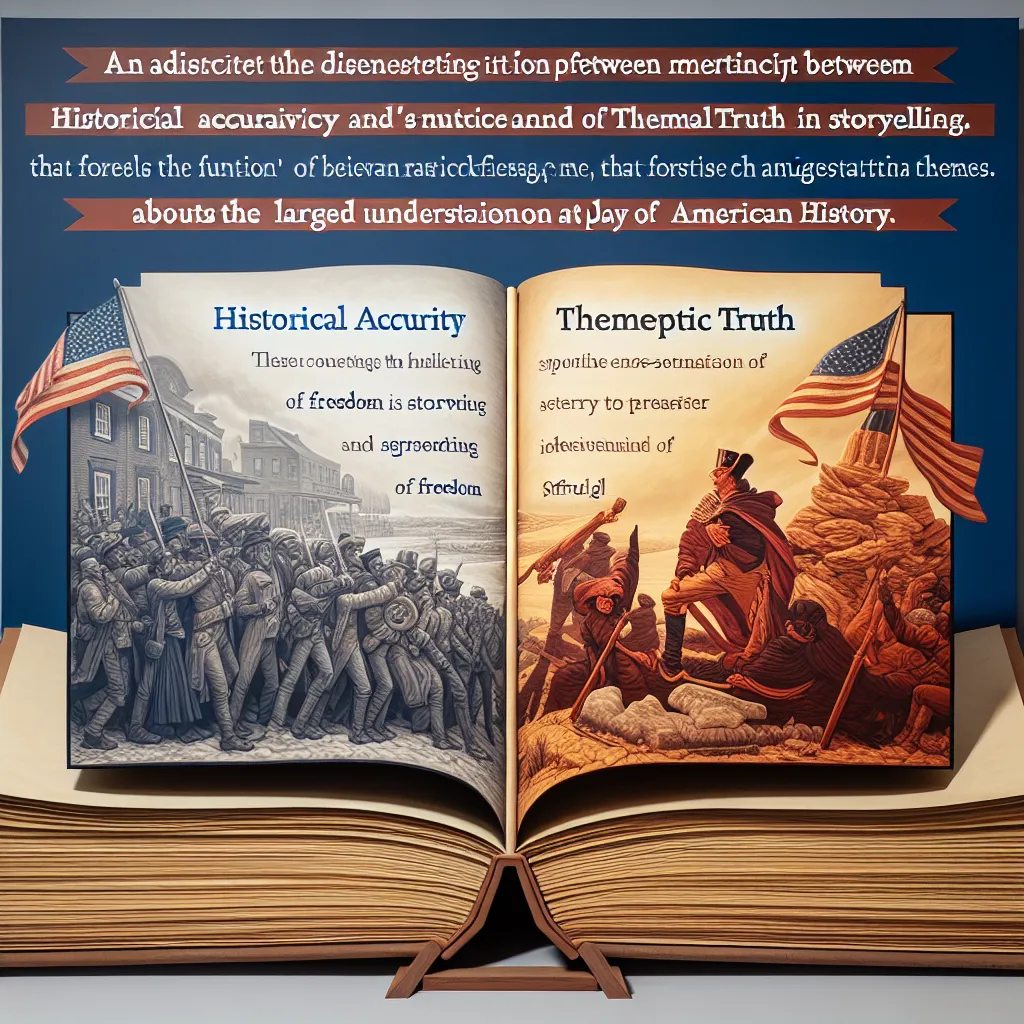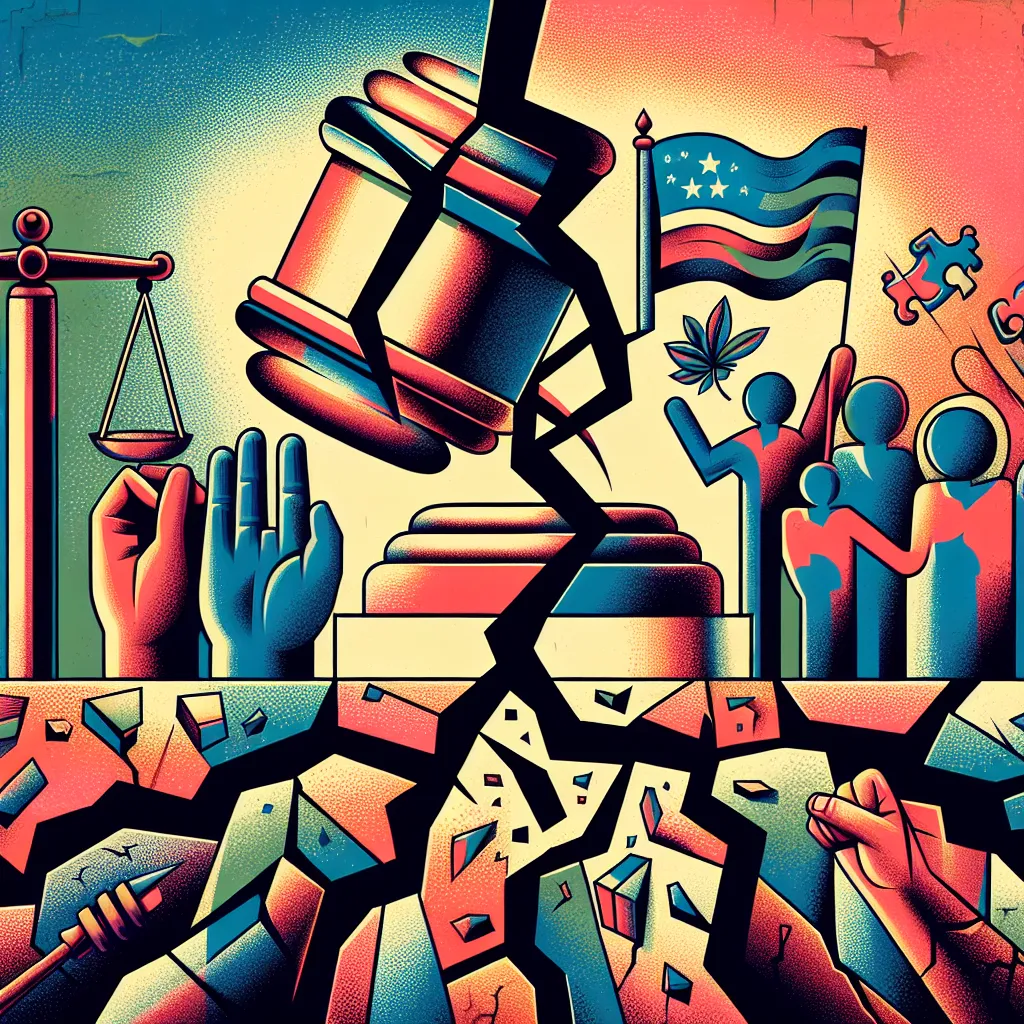Ask AI on The Internet
Question: analyze and respond to this quote “I’m not writing a historical novel. I’m writing a novel that deviates from what actually happened to get to a larger idea of Americanness. And so my idea was that I wouldn’t stick to the facts, but I would stick to the truth by moving historical episodes around and putting them in conversations with each other so I can get to a larger story about America than strictly a linear story about a slave running away.”
The quote reflects a nuanced approach to historical fiction. The author acknowledges that their aim isn't to produce a precise recounting of history, but rather to explore deeper truths about the American experience and identity. Here are some observations and considerations in response to the quote: 1. **Artistic License**: The author emphasizes the use of artistic license to convey larger truths. By rearranging historical events and creating new dialogues, the author can highlight themes and narratives that may not emerge from a strictly factual recounting. 2. **Purpose over Precision**: This approach prioritizes thematic exploration over historical accuracy. The goal is to evoke a broader understanding and provoke thought rather than to provide a documentary-like representation of events. 3. **Truth vs. Fact**: The distinction between "facts" and "truth" is crucial. Facts are specific, verifiable pieces of information, whereas truth in this context refers to deeper insights into the human condition, societal structures, and cultural identity. 4. **Storytelling and Empathy**: By structuring the narrative to reveal new perspectives, the author can foster empathy and a deeper connection with the reader. This can be particularly powerful in discussing complex issues like slavery and race in America. 5. **Historical Context**: Historical authenticity may be preserved in spirit, if not in detail. This can still provide readers with valuable context and understanding, even if specific events are fictionalized or reorganized. In summary, the author is leveraging the flexibility of fiction to explore what it means to be American, aiming to surface important truths through creative storytelling. This approach allows for a more profound exploration of themes and may resonate more deeply with readers, providing a layered understanding of history and identity.
Think your answer is better than the AI's? Post it below.
Other Most Relevant Posts:
 Narrative Echoes: How Nick Carraway's Perspective Shapes Truth and Interpretation in The Great Gatsby
Narrative Echoes: How Nick Carraway's Perspective Shapes Truth and Interpretation in The Great Gatsby
 In the first paragraph, Douglass expresses reluctance to disclose the identities of the white boys who helped him learn to read, deeming it as "an almost unpardonable offense." He further adds a perso
In the first paragraph, Douglass expresses reluctance to disclose the identities of the white boys who helped him learn to read, deeming it as "an almost unpardonable offense." He further adds a perso
Question Tags
If you want your question answered by an AI, click here.





Post your own comment: